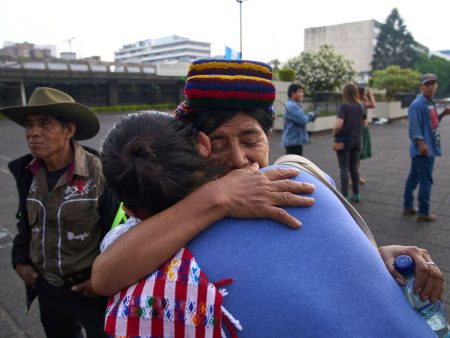The recent, unprecedented visit of U.S. officials to Damascus, Syria, marks a significant shift in American foreign policy after over a decade of minimal engagement with the Assad regime. A team comprised of Special Envoy for Hostage Affairs Roger Carstens, Assistant Secretary of State for Near Eastern Affairs Barbara Leaf, and NEA Senior Adviser Daniel Rubinstein, embarked on this mission with a multifaceted agenda. This trip, the first of its kind in over ten years, underscores the evolving geopolitical landscape and the U.S.’s cautious re-engagement with Syria amidst ongoing instability.
Primarily, the delegation seeks to gather intelligence regarding the fate of American citizens who disappeared under the Assad regime’s control. The most prominent case is that of Austin Tice, a former Marine and freelance journalist kidnapped in 2012. His disappearance has been a longstanding concern for the U.S. government, and Carstens has actively pursued his case, recently announcing a $10 million reward for information leading to Tice’s safe return. The FBI has also renewed its call for information, highlighting the renewed focus on uncovering Tice’s whereabouts given the recent political upheaval in Syria. The delegation’s presence in Damascus offers a rare opportunity to potentially gain access to information or establish channels of communication that could aid in Tice’s recovery and the recovery of other missing Americans.
Beyond the hostage issue, the U.S. officials aim to engage with a broad spectrum of Syrian society, including civil society members, activists, and representatives from diverse communities. This engagement seeks to understand the Syrian people’s aspirations for their country’s future following the recent fall of the Assad regime and the subsequent power vacuum. The U.S.’s stated intention is to support a Syrian-led political transition that reflects the will of the Syrian people. This direct interaction with Syrian voices on the ground provides valuable insights into the complexities of the situation and helps inform future U.S. policy decisions regarding Syria.
The delegation’s engagement also extends to Hayat Tahrir al-Sham (HTS), a U.S.-designated terrorist group. This controversial aspect of the mission aims to discuss transition principles endorsed at the Aqaba Meetings in Jordan, where world leaders convened to discuss the future of Syria. While the engagement with HTS raises concerns, the State Department justifies it as a necessary step to promote a stable and inclusive transition in Syria. This engagement, however, highlights the difficult balancing act the U.S. faces in navigating the complex web of actors in the Syrian conflict.
The Aqaba Meetings, referenced frequently by the State Department, serve as a critical backdrop to the delegation’s visit. These meetings, attended by world leaders, emphasized the importance of an inclusive, Syrian-led political transition. Secretary of State Antony Blinken reiterated the U.S.’s support for a future Syrian government chosen by and representative of all Syrians. The meetings underscore the international community’s growing focus on finding a political solution to the Syrian crisis and establishing a stable, representative government. The U.S. delegation’s mission to Damascus can be seen as a direct follow-up to the Aqaba Meetings, aimed at translating the principles discussed there into concrete action.
The visit to Damascus represents a delicate and complex diplomatic endeavor, balancing humanitarian concerns, counterterrorism efforts, and the pursuit of long-term stability in Syria. While the primary focus remains on the fate of American hostages, the broader agenda encompasses understanding the aspirations of the Syrian people and engaging with various actors, including controversial groups like HTS, to promote a peaceful and inclusive political transition. This cautious re-engagement with Syria marks a significant shift in U.S. policy, reflecting the ongoing evolution of the Syrian conflict and the international community’s renewed efforts to find a lasting solution. The success of this mission will depend on the information gathered, the relationships forged, and the subsequent policy decisions made by the U.S. government in the coming months.










